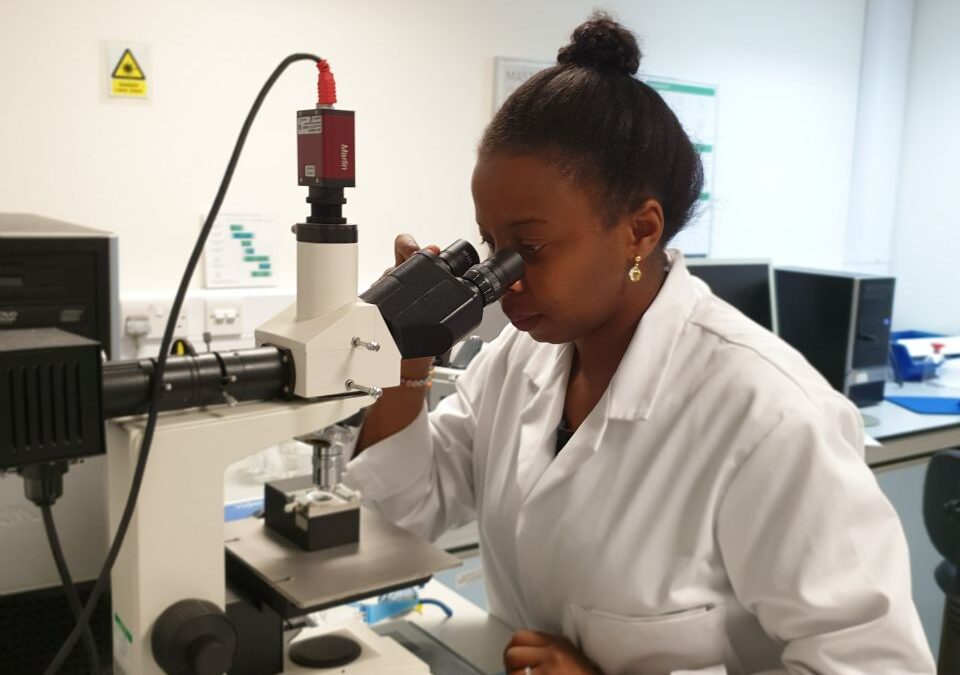We collect and dispose of hundreds of thousands of nappies from care homes across the UK every single year. Whilst most of the healthcare waste that we collect is recycled and turned into energy, it’s not possible to do so with nappies.
As it stands, the only way of reducing the environmental impact of nappies, incontinence pads, and other absorbent hygiene products (AHPs) is to use reusable ones. That’s not a possible solution for care homes, and we’re sure that the majority of parents and guardians of 1.7 million babies born every year in the UK alone would rather not be washing dirty nappies for reuse, either.
It’s for these reasons that we’ve decided to invest in finding a recycling solution for all disposable absorbent hygiene products and are teaming up with the University of Brighton’s Knowledge Transfer Partnership to work with one of their researchers, Chibi, to do that. Our research focuses on AHPs in care homes, but our findings will be applicable across all sectors. Imagine the life-changing value of that.
The environmental impact of disposable absorbent hygiene products
Single-use nappies, incontinence pads, and other absorbent hygiene products (AHPs) take several hundreds of years to degrade in landfills. With one baby using close to 4,000 nappies in its first 2.5 years (EA 2008) and up to 3 million people in the UK having some degree of urinary incontinence, it’s safe to say that there are a lot of nappies and other absorbent products hanging around our planet. The environmental footprint, both in their manufacturing and disposal processes, is huge.
Sustainable solutions for AHP waste explored so far
We’re not the first company to be searching for AHP waste recycling solutions. Councils and corporations across the UK have looked into a range of solutions, from researching the manufacture processes of biodegradable nappies, to an outright ban on disposable AHPs.
Whilst the research may still be in its nascent stages, that strategy doesn’t immediately address the growing quantities of used AHP waste currently being sent to landfill or incineration. Equally, with an aging population in all Western countries, a ban on disposable AHPs without the provision of suitable alternatives that guarantee a comparable quality of life for wearers and carers is unlikely to be adopted by households or care homes.
Some solutions explored have been more innovative, with varying degrees of success. Envirocomp UK have tried co-composting with post-consumer AHPs; Procter & Gamble partnerships with companies in Italy and The Netherlands; Japanese AHP manufacturers, Uni-Charm is looking into electricity generation from post-consumer AHPs. NappiCycle has also explored converting AHP components into new, value-added products such as construction materials.
How Medisort are exploring AHP waste recycling
We’re at the early stages of our AHP waste recycling project. Our aim is to maximise waste resource efficiency and promote a circular economy, whilst meeting some of the objectives set out in the 2012 European Bioeconomy Strategy. As the project progresses, we’ll be evaluating CO2 savings.
Part-funded by Innovate UK (a non-departmental public body funded by the UK government), our recycling project is aimed at recovering valuable components of disposable nappies, incontinence pads, and other AHPs.
For those who know little about nappies but would like to get a better idea of materials, they contain various polymers, some of which degrade very slowly but are of high value. For example, polyolefins, like polypropylene, which can be repurposed as outdoor furniture, paving stones and concrete additives. Whilst superabsorbent polymers which give nappies their superior blotting qualities, can be fashioned into soil improvers, dewatering flocculants for drilling mud and various other applications.
This project draws on the expertise of both Medisort staff and academics from the University of Brighton, which include process scientists, a microbiologist, an ecologist and Chibi, who works directly from our site. Right now, we’re conducting lab tests at the University aimed at evaluating optimal soiled nappy disinfection methods in advance of scaling up at Medisort.
We’re excited by this project and hope to find a solution that not only reduces the carbon footprint of our customers but can be adopted all over the world.

